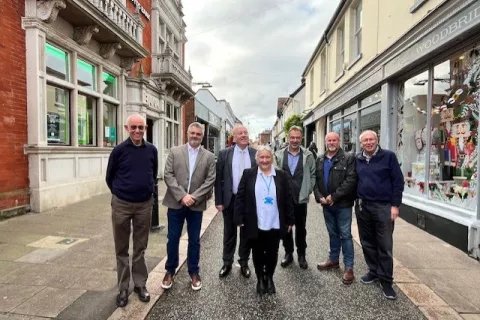Facebook founder, Mark Zuckerberg has come under scrutiny for his latest Internet.org initiative after concerned partners in India have argued it could pose a threat to net neutrality.
The Internet.org project aims to provide end users within some of the world’s poorest countries (initially at least) with free access to some Internet content which is paid for by the content provider rather than the end user. Surely, providing the poorest people with free access to the Internet is a good thing, right?
In principle, yes it is. However, to do that the cost of delivering that content to the end user is paid for by the content provider rather than the end user. Therefore, this project is only granting free access to
limited content and this is where the problem lies. The concern is that this goes against the fundamental principles of net neutrality, which requires
all content on the Internet to be treated equally and therefore accessed equally. The Internet.org project will
only provide free access to content from partners that are involved in the project and are therefore paying for access to their own service – which is the fundamental
opposite of net neutrality!
In response Zuckerberg said: “Net neutrality is not in conflict with working to get more people connected. These two principles - universal connectivity and net neutrality - can and must coexist.”
He further justified this by arguing “We're open for all mobile operators and we're not stopping anyone from joining…We want as many internet providers to join so as many people as possible can be connected." He also stated "if someone can't afford to pay for connectivity, it is always better to have some access than none at all."
But, is that really the case? With ‘controlled’ and limited access to content there will always be the potential for abuse. After all, that’s why so many organisations support the principle of net neutrality. Consider for example, a rogue government that abuses the project to deliver propaganda to their citizens by paying to deliver the content. Or a service provider abusing their dominant market position and stifling new market entrants and innovation by ensuring free access to their services where smaller start-ups may not be able to afford to participate. Surely, in these such situations ‘some access’ may not necessarily be better than ‘no access’.
Internet.org in Europe?
When recently participating in a Q&A debate, Zuckerberg was also asked if Internet.org could be used within Europe to deliver Internet access to not-spots. He hinted that it could be used within Europe by stating the service will be made available to anyone “who needs to be connected”. However, he also stated that developing countries will receive roll-out priority.
Separate to this, the project would be likely to face further criticism if it was rolled out through Europe following last year’s rulings by the EU to protect net neutrality. I think it’s unlikely this project would help to solve the issue of connecting the last 5% of the UK in any way but even if it did this is not the intended use for the project and it should definitely focus on connecting people in developing countries rather than trying to solve connectivity issues within much richer nations.
So whilst Internet.org seems a good and righteous idea in principle, it’s already facing some serious hurdles which could fundamentally halt the project. It comes down to the importance of net neutrality for each participating country – is protecting an open Internet as important to them as getting their citizens online, even if it is with restricted content?
This is where the concerns really lie. The issue of net neutrality has already been subjected to huge debate across Europe and the US (amongst others), with both finally ruling that it must be protected. The eagerness to get people online and the lure of ‘free access’ could seriously influence this decision elsewhere in the world and what may be a useful short-term solution could have serious repercussions for a longer term Internet policy that could end up multi-tiered and favouring particular content and providers. Whilst we applaud the core objectives behind this project, the potential for harm in its current format is concerning.
Have your say!
Do you think Internet.org will damage net neutrality or do you agree with Zuckerberg that they can coexist? Do you think it’s more important to deliver free access than to worry about restricted content? Do you think the importance of protecting net neutrality should be the overriding objective? Let us know your thoughts by leaving us a comment below.
Related articles
Further information
[cookiecontrol1]
[subscribe2]

 Neil Watson, Head of Service[/caption]
Neil Watson, Head of Service[/caption]


